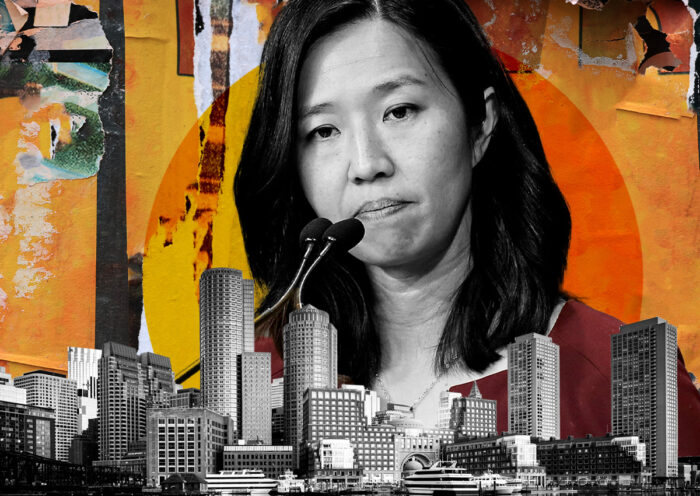
A proposal to ease Boston householders’ property tax burden would depart struggling workplace house owners shouldering extra of the load.
Boston Mayor Michelle Wu is petitioning for a short lived enhance of Beantown’s tax-rate ceiling for industrial properties relative to residential levies, Bloomberg reported. The adjustment would shift the onus of filling town’s looming finances gaps from residences to workplaces.
The adjustment could be phased in over three years.
Greater than a 3rd of tax income for Boston comes from industrial property, a a lot higher share than in cities similar to Chicago, Miami and New York, so industrial downturns are felt way more sharply.
The town is liable to shedding greater than $1 billion in tax income over the subsequent 5 years, in accordance with an earlier evaluation from Tufts College’s Heart for State Coverage Evaluation and the Boston Coverage Institute.
As a result of the mayor doesn’t need to slash spending, town both wants to boost taxes on householders — arguably essentially the most highly effective constituency in politics — or discover one other method to shore up its funds.
Boston may want to boost taxes on residents by as a lot as 30 p.c if no different measures are taken to fill the void.
Whereas residence values have rocketed upward, the emptiness price for Boston’s workplace house hovers round a file 25 p.c, in accordance with Colliers. That’s the reason tax income from workplaces is anticipated to fall. However making up for that by elevating charges strikes some critics as silly.
“You don’t increase taxes on an trade which is struggling since you’re going to make it much less aggressive,” NYU city coverage and planning professor Mitchell Moss advised Bloomberg. Workplace tenants may relocate to Cambridge or elsewhere, he mentioned.
There’s precedent for what Wu is pushing. 20 years in the past, Boston made an identical reclassification when the dot-com bubble burst, sending the industrial market spiraling. However a full restoration from that downturn appeared inevitable, which doesn’t look like the case from the pivot to distant work.
Industrial properties in Boston are taxed at a price of about 2.5 p.c, whereas residences are taxed at 1.1 p.c, in accordance with Tufts College’s Heart for State Coverage Evaluation and the Boston Coverage Institute.
— Holden Walter-Warner
